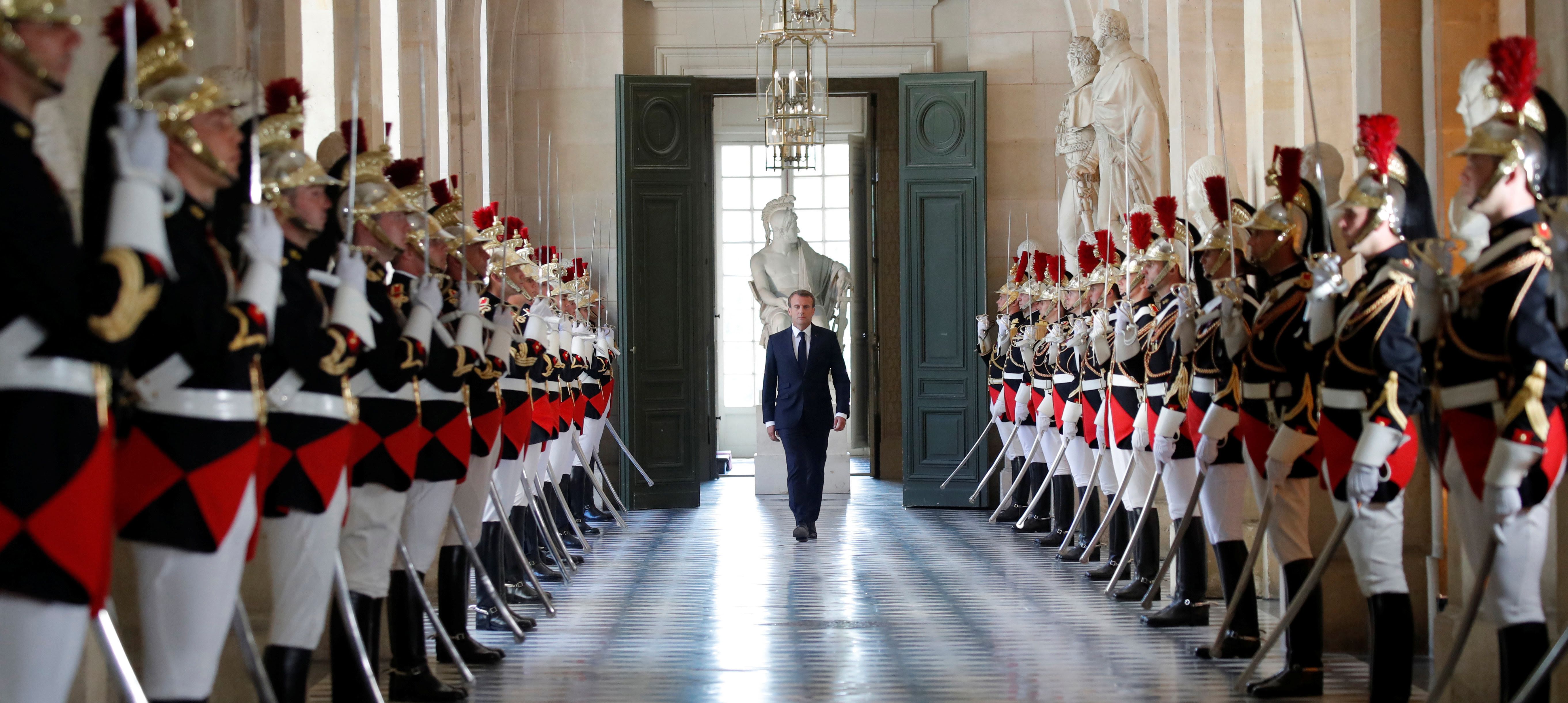July 11, 2018
You’ve got to hand it to Emmanuel Macron (pictured above, on Monday): it takes serious nerve for a French President who is struggling in the polls to deliver a speech about the need to reform the welfare state from Versailles palace using cake as a rhetorical device. No, seriously – that really happened. Let’s assume that the 40-year-old former investment banker, who has already taken flak from domestic opponents for his aloof, allegedly king-like approach to the presidency, is acting rationally.
What message was he trying to send here?
We’ve noted before that Macron, like Donald Trump, is a political outsider who wants to project strength. By reveling in the ceremony and trappings of office – whether it’s riding a military jeep to his inauguration or walking between rows of ceremonial guards, at an estimated cost of $350,000, to deliver a State-of-the-Union-like address at Versailles – Macron is signaling that the xenophobic nationalists who are threatening to unwind decades of liberal democracy in Europe don’t have a monopoly on patriotism. There’s a risk that by trying too hard to inject gravitas into his presidency, he ends up alienating more voters than he charms. But it does help explain the puzzling optics.More For You
A photograph posted by U.S. President Donald Trump on his Truth Social account shows him sitting next to CIA Director John Ratcliffe as they watch the U.S. military operation in Venezuela from Trump's Mar a Lago resort, in Palm Beach, Florida, U.S., January 3, 2026.
@realDonaldTrump/Handout via REUTERS
Most Popular
- YouTube
In this "ask ian," Ian Bremmer analyzes Trump’s recent meeting with Zelensky and how close (or far) Russia and Ukraine are from a peace deal.
Syrian President Ahmed al-Sharaa attends the military parade of the Syrian army in Umayyad Square in central Damascus to mark the one-year anniversary of the fall of the Assad regime, on Dec. 8, 2025.
Mohammed Al-Rifai/dpa via Reuters Connect
A year ago this month, Syria’s brutal dictatorship collapsed. There are signs of recovery, but sectarian violence threatens to undermine the optimism.
© 2025 GZERO Media. All Rights Reserved | A Eurasia Group media company.
